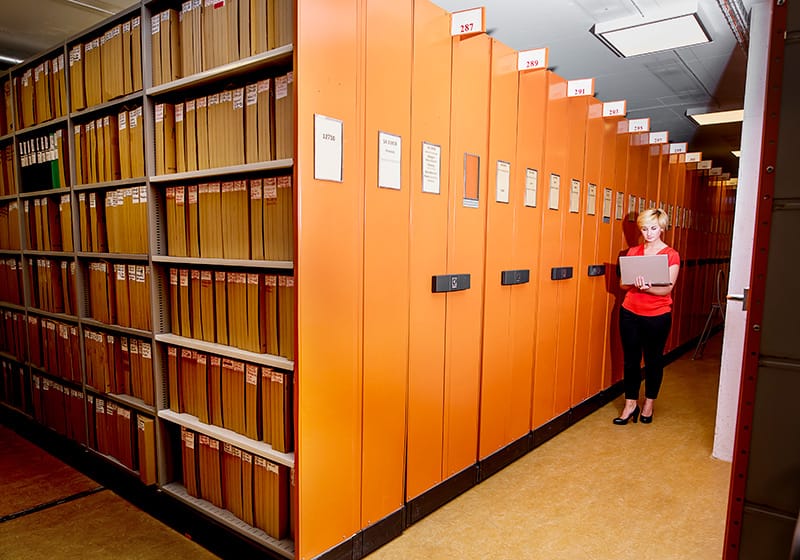According to Swedish accounting law, a company’s bookkeeping must be archived, and the retention period varies depending on several parameters.

Fill in your details,
and we will contact you.
What applies to the archiving of accounting records?
Free yourself from your paper filing. Free up the space, time, and financial resources that accounting archiving has burdened you with. Accounting archiving and the obligation to archive are foundational in legislation, something that must be carried out to be able to provide documentation if needed to explain the state of the accounts.
According to Swedish accounting law, a company’s accounting must be saved, i.e., archived. The archive period varies depending on several parameters, not just the minimum level stated in the accounting law; for example, the limitation period often dictates.
When Depona takes care of, manages archives, and provides services for physical accounting archives, you essentially have a digital paperless workflow and work environment. An important aspect is that you have an archive that delivers information when you need it and that it does not require ongoing attention. Our extremely efficient archive facilities significantly reduce your costs compared to maintaining your own spaces to store accounting papers for many years.


Paperless Future with Archiving Obligations
The future will be nearly paperless, and Depona is here to assist you along the way by securely, smoothly, and cost-effectively managing the decreasing volume of physical documents that still exist and are being created.
The archiving obligation encompasses all receipts, documentation, and records for the company’s accounting and financial statements. It is the responsibility of the business and its authorized signatories to ensure that the archiving of accounting records complies with the requirements of the Accounting Act.
Financial information must be stored in a secure and comprehensible manner and be easily accessible. Auditors and authorities should have no difficulty accessing the information. In many cases, this can be facilitated if the company establishes an archive plan. This plan includes information about what has been archived and where it is stored. Additionally, throughout the archiving period, the company needs to keep equipment and systems updated to make financial information accessible. Storage must be done in Sweden.
Specialists in structured archiving
Many requirements and a lot to keep track of for companies that have other priorities to focus on. Managing the archiving of accounting in-house in a structured and secure manner is both time-consuming and costly.
Depona specializes in physical archiving of accounting and financial records. For 20 years, we have been one of the leading companies in the Nordics, assisting over 5,000 businesses, authorities, state-owned companies, municipalities, regions (former county councils), and hospitals with their archiving needs.
